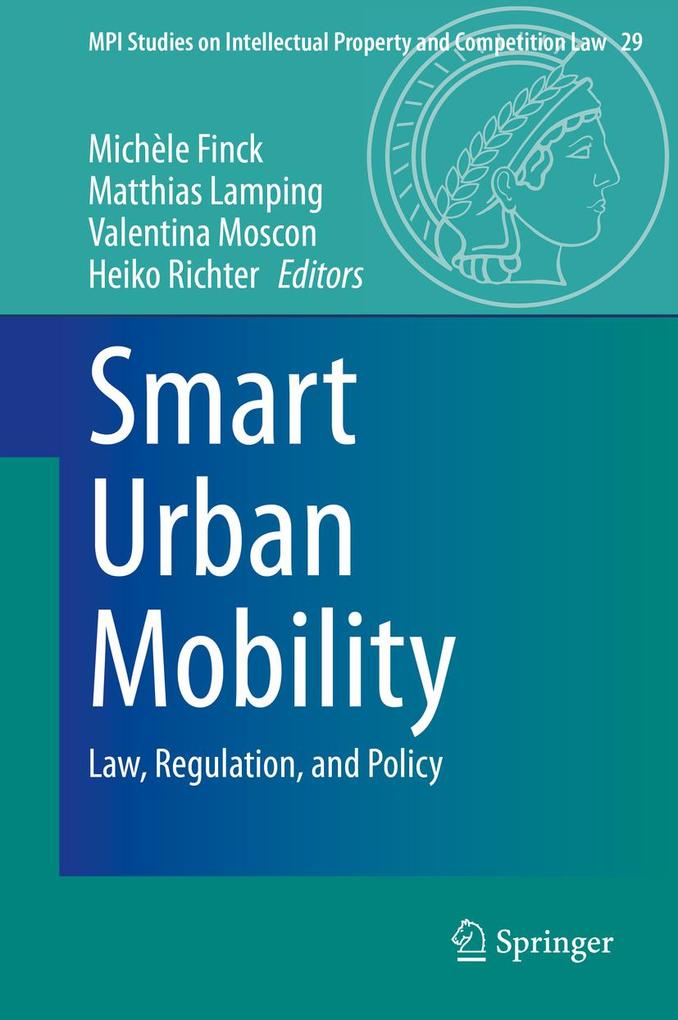
Sofort lieferbar (Download)
This book adds a critical perspective to the legal dialogue on the regulation of 'smart urban mobility'. Mobility is one of the most visible sub-domains of the 'smart city', which has become shorthand for technological advances that influence how cities are structured, public services are fashioned, and citizens coexist. In the urban context, mobility has come under pressure due to a variety of different forces, such as the implementation of new business models (e.g. car and bicycle sharing), the proliferation of alternative methods of transportation (e.g. electric scooters), the emergence of new market players and stakeholders (e.g. internet and information technology companies), and advancements in computer science (in particular due to artificial intelligence). At the same time, demographic changes and the climate crisis increase innovation pressure.
In this context law is a seminal factor that both shapes and is shaped by socio-economic and technological change. This book puts a spotlight on recent developments in smart urban mobility from a legal, regulatory, and policy perspective. It considers the implications for the public sector, businesses, and citizens in relation to various areas of public and private law in the European Union, including competition law, intellectual property law, contract law, data protection law, environmental law, public procurement law, and legal philosophy.
Chapter 'Location Data as Contractual Counter-Performance: A Consumer Perspective on Recent EU Legislation' of this book is available open access under a CC BY 4.0 license at link.springer.com.
In this context law is a seminal factor that both shapes and is shaped by socio-economic and technological change. This book puts a spotlight on recent developments in smart urban mobility from a legal, regulatory, and policy perspective. It considers the implications for the public sector, businesses, and citizens in relation to various areas of public and private law in the European Union, including competition law, intellectual property law, contract law, data protection law, environmental law, public procurement law, and legal philosophy.
Chapter 'Location Data as Contractual Counter-Performance: A Consumer Perspective on Recent EU Legislation' of this book is available open access under a CC BY 4.0 license at link.springer.com.
Inhaltsverzeichnis
Smart Urban Mobility as a Regulatory Challenge. - Part I: Public Perspective. - Governing a Risky Relationship Between Sustainability and Smart Mobility. - Environmental Implications of the EU s Urban Mobility Agenda. - Smart Mobility, Transport Poverty and the Legal Framework of Inclusive Mobility. - Local Leadership and Its Limits in the Deployment of Sustainable Mobility Policies. - Some Public Procurement Challenges in Supporting and Delivering Smart Urban Mobility: Procurement Data, Discretion and Expertise. - Governing Smart Spaces Through Autonomous Vehicles. - Part II: Business Perspective. - mart Urban Mobility: A Positive or Negative IP Space? A Case Study to Test the Role of IP in Fostering Digital Data-Driven Innovation. - Sharing or Platform Urban Mobility? Propertization from Mass to MaaS. - Collaborative Platforms and Data Pools for Smart Urban Societies and Mobility as a Service (MaaS) from a Competition Law Perspective. - Smart Mobility and Technological Compatibility from anAntitrust Perspective. - Efficient Mobility: Lessons on Dynamic Pricing and Sustainable Passenger Service. - Part III: Citizens Perspective. - Location Data as Contractual Counter-Performance: A Consumer Perspective on Recent EU Legislation. - Yes Means No(thing): Bridging Consent in Contract Law and Data Protection in the Context of Smart Mobility. - Private Ordering of Online Platforms in Smart Urban Mobility: The Case of Uber s Rating System. - Challenges to Locational Privacy: The Transformation of Urban Mobility.
Produktdetails
Erscheinungsdatum
28. September 2020
Sprache
englisch
Auflage
1st ed. 2020
Seitenanzahl
340
Dateigröße
6,48 MB
Reihe
MPI Studies on Intellectual Property and Competition Law
Herausgegeben von
Michèle Finck, Matthias Lamping, Valentina Moscon, Heiko Richter
Verlag/Hersteller
Kopierschutz
mit Wasserzeichen versehen
Produktart
EBOOK
Dateiformat
PDF
ISBN
9783662619209
Entdecken Sie mehr
Bewertungen
0 Bewertungen
Es wurden noch keine Bewertungen abgegeben. Schreiben Sie die erste Bewertung zu "Smart Urban Mobility" und helfen Sie damit anderen bei der Kaufentscheidung.









